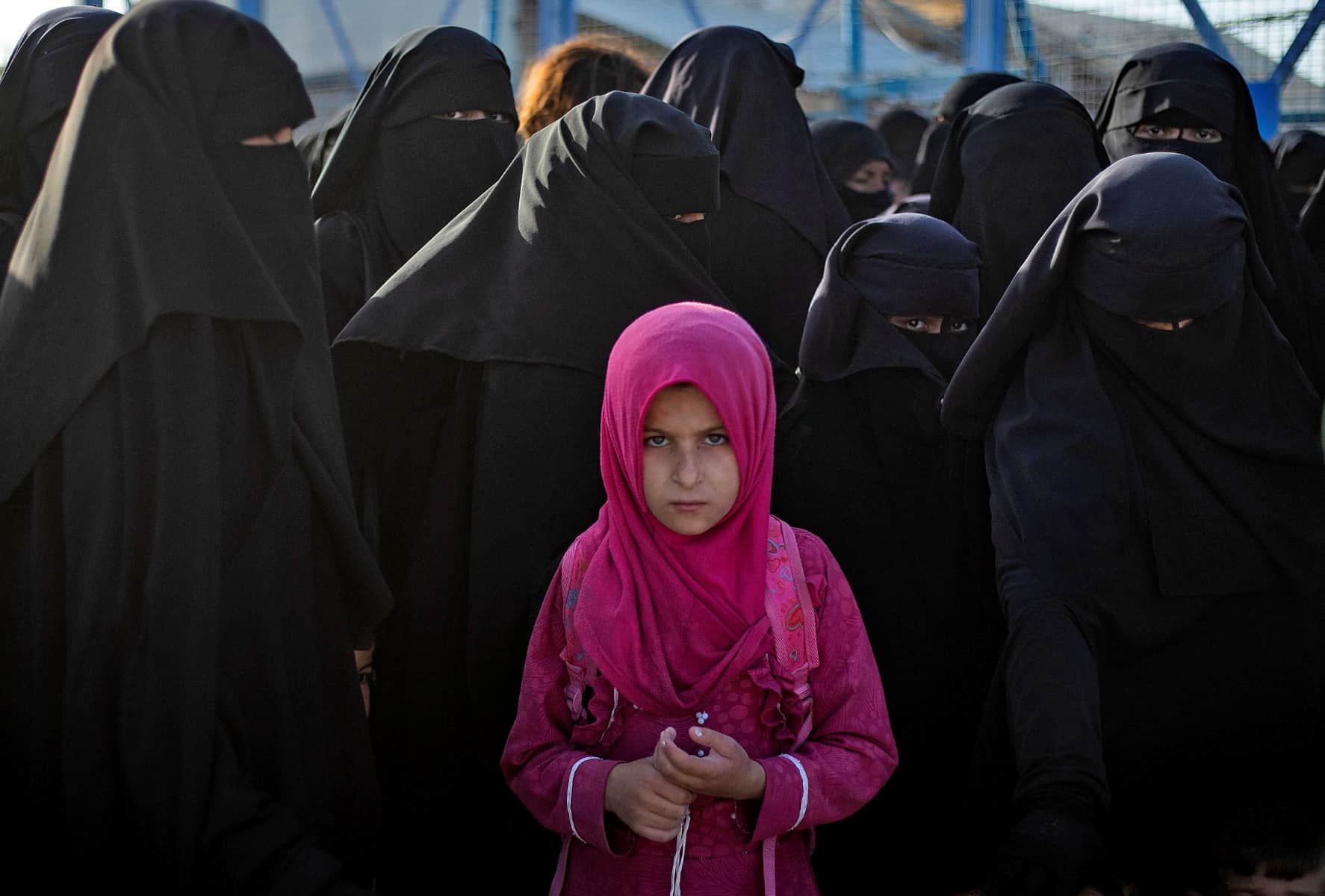The head of the US armed forces’ Central Command Monday urged countries from around the world to repatriate their nationals from a northeast Syrian camp housing jihadists’ wives and children.
Al-Hol camp holds around 56,000 people — mostly Syrians and Iraqis, but also around 10,000 who consist largely of wives and children of Islamic State (IS) fighters originating from further afield.
Many were taken to the camp during the defeat of the jihadist group’s self-declared caliphate by US-backed Syrian Kurdish forces in 2019.
“I encourage all of the countries that have citizens there to repatriate, rehabilitate and reintegrate” camp residents, CENTCOM’s General Michael Kurilla told reporters in Jordan’s capital Amman.
Syria’s Kurds — who run a semi-autonomous adminstration in northeast Syria — have repeatedly begged countries to repatriate their citizens.
But such calls, despite being echoed by the United Nations, have largely fallen on deaf ears, due to fears returnees might pose a security threat back home and trigger a domestic backlash.
IS, a Sunni extremist group, seized around a third of Iraq and swathes of war-torn Syria in 2014, recruiting foreign jihadists from around the world, before it was gradually ground down by US-backed forces on both sides of the border.
The foreigners at Al-Hol are detained in a secure area away from other camp residents, since many of them are still highly radicalised, posing problems for Kurdish guards and other camp residents.
“I think we have to look at this with empathy… because there is no military solution to this,” Kurilla said.
“The only solution is to repatriate, rehabilitate and reintegrate” camp residents.
About 50 percent of Al-Hol’s inhabitants believe IS’ “vile ideology,” Kurilla said, while the other 50 percent “are those who have no other place to live and would like to… go back to their native country”.
The camp has grown increasingly volatile this year, with at least 26 people murdered up to late August, according to the UN.
Around 700 IS-linked Iraqis are being repatriated per month from Al-Hol, said Kurilla.
It will take “about four years” to repatriate the Iraqi residents alone at that rate, he noted.
“We will have to accelerate that to a much faster” rate, he said, adding that the US was working with Iraqi authorities towards that end.
But repatriations to other countries have been even slower.
In late July, the Kurdish administration handed Tajikistan 146 women and children related to IS fighters, in the first such repatriation to the ex-Soviet state.
France in early July repatriated 35 children and 16 mothers from camps in northeast Syria, according to the foreign ministry, taking the total number of children returned to Paris to 161.
Kurdish-led forces last month launched a security operation to flush out fighters hiding out in Al-Hol following a resurgence of attacks.
Dozens of suspected IS operatives have been detained and major networks dismantled since the start of operations, the US-led anti-IS coalition said last week.

